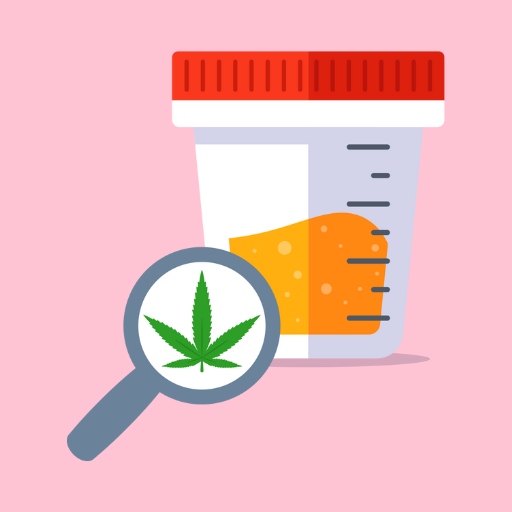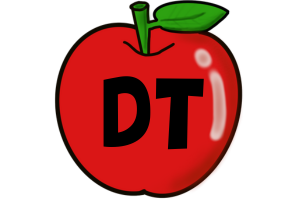As a profession that works directly with young people, teaching carries a significant level of responsibility and trust. One of the ways in which schools ensure the safety and well-being of their students is through the implementation of drug testing policies for their employees, including teachers. However, the policies surrounding drug testing can vary greatly depending on several factors, including the state, school district, and individual school policies. This article will explore the key points regarding drug testing policies for teachers in the United States.

Are Teachers Drug Tested in the United States?
The answer to this question is not straightforward, as it largely depends on individual state laws and school district policies. Some states have laws that allow or even mandate drug testing for public employees, including teachers. On the other hand, some states have strict privacy laws that limit the circumstances under which an employer can mandate a drug test.
In general, public school teachers are more likely to be subjected to drug testing due to their status as government employees, whereas private schools have more discretion in their policies. It’s important to note that a positive test doesn’t always lead to dismissal; some districts may offer support programs or rehabilitation for teachers struggling with substance abuse.
When are Teachers Drug Tested?
Again, this varies. In some cases, drug tests may be conducted as part of the initial hiring process. This is known as pre-employment testing and is common in many sectors, not just education. However, the school must have a written drug policy that clearly states that pre-employment drug testing is part of the hiring process.
Random drug testing, where a teacher may be asked to take a drug test without prior notice, is less common and usually requires some form of reasonable suspicion. Reasonable suspicion might arise from observable behaviors such as impaired job performance, erratic behavior, or visible signs of drug use.
Lastly, post-incident or post-accident drug testing may occur after a work-related accident or incident. This typically happens if there’s reason to believe that drug use could have contributed to the incident.
What Rights Do Teachers Have?
While schools have a responsibility to ensure the safety of their students, teachers also have rights that protect them from unfair testing practices. The Fourth Amendment to the U.S. Constitution protects individuals from unreasonable searches and seizures, and this has been interpreted by courts to apply to workplace drug testing under certain circumstances.
In general, blanket or random drug tests are more likely to be seen as an invasion of privacy, while testing based on reasonable suspicion is more likely to be upheld in court. However, these interpretations can vary by state and even by case, and legal precedents continue to evolve. Teachers concerned about drug testing policies should consult with a labor attorney or their local teachers union to understand their rights under local laws and regulations.
Regular Drug Testing in Jobs
Drug testing employees is not a new practice, especially in certain fields where they have to make critical decisions and be mentally fit at work. These include:
- Aerospace and defense
- Manufacturing
- Engineering
- Security companies
- Government employees
- Information technology
- Medicine and Healthcare
- Education
Pros and Cons of Drug Testing
As with every aspect of hiring, there are pros and cons to drug testing. Since drug testing is a personal and sensitive topic, here are some pros and cons leaders should consider before proceeding
Pros
- Safety
Drug testing can foster a safer work environment for everyone.
- Efficiency and Productivity
Organizations can help employees reach their full potential by ensuring they’re not under the influence of drugs or alcohol.
- Prevention
When employees are aware that your workplace promotes a drug-free workplace with routine testing, they may be discouraged from engaging in illegal activities.
- Social Responsibility
Organizations that routinely perform drug tests help their communities by protecting them against drug use.
Cons
- Expense
Drug testing isn’t cheap, especially when you have to test many employees.
- Anger and Resentment
Many employees consider drug testing an invasion of their privacy, making them angry or resentful for being tested.
- Inaccurate Results
Drug tests often provide false-positive results, which can have severe repercussions on the tested individual.
Drug Testing for Teachers
Most public and private schools do not practice drug testing. However, many people question whether they should start making drug tests a pre-employment requirement or take regular drug tests during teachers’ employment period. Logically, it only makes sense that if it’s common in other professions, it should also be required for teachers responsible for teaching and taking care of students.
Many people believe that teachers who fail drug tests should be fired or at least be made to go for drug counseling. Parents often worry about other students being a bad influence on their children. However, it’s much worse when the teachers responsible for keeping them safe take part in such irresponsible practices.
Do Teachers Get Drug Tested when Hired?
While most schools don’t practice drug testing, it depends on several factors. These factors include whether a teacher works in a public or private school, which state they teach in, and the school’s condition. Since private schools don’t receive public funding, they can set their rules for employment and drug testing policies.
For example, teachers in boarding schools are within the same vicinity as their students round the clock. Knowing that the adults responsible for watching over students are not under the influence of drugs or alcohol can put the school and parents at ease. Moreover, Virginia considered drug testing in 2011 when a teacher faced charges for marijuana possession.
It was only due to the steep cost ($55,000 a year) that schools didn’t go with it. However, states like Missouri and Hawaii are considering drug testing. Hawaii tried to normalize random drug testing, especially after six teachers were arrested in drug-related cases. The state even incentivized the program by offering teachers an 11% pay increase if they allowed it.
Furthermore, most school districts have similar policies when it comes to drug testing. Only school bus drivers are subject to mandatory and random drug tests. However, if a school gets a complaint or has reason to believe a teacher is under the influence, they can ask them to be tested. Many teachers have stated that the policies shouldn’t change.
Why Shouldn’t Teachers Get Drug Tested?
Today, there are many arguments against drug testing for teachers. According to a survey by the Department of Health and Human Services, public educators ranked 18th out of 19 in the illegal drug report list. With only 4% of teachers reportedly using drugs, it’s improbable that testing all teachers will lead to any significant findings. Plus, a single drug test can cost up to $55.
Considering there are over 3.7 million teachers in the US, governments and private schools have to shell out around $214 million to test all of them. Another reason people are against drug testing is that it violates a teacher’s privacy. You cannot fire a teacher based on medical conditions that don’t affect their ability to do their work.
So, if a teacher has a condition that isn’t affecting their ability to work, they don’t have to disclose it. Random drug tests can forcefully reveal prescription medication even if the teacher being tested isn’t under suspicion.
Should Teachers Get Drug Tested When Hired?
Since teachers can’t make their rules, there’s not much they can do if schools consider drug testing. However, with regular reporting and case-handling, drug testing shouldn’t be necessary, especially when the teachers do their job right. The money schools will have to spend on drug testing can go to other unfunded parts of educations.
At the same time, it’s understandable why some parents and students would feel safer knowing that the professional responsible for their child’s or their education is working sober and drug-free at all times.
Final Verdict
Drug testing has been commonplace in professions that require critical decision-making skills. Most people argue that the people who spend the most time with children should also be subject to testing. Do teachers get drug tested when hired? No.
However, with many cases in recent years, parents and education experts believe that random testing is necessary to keep schools as safe as possible.
Are you worried schools might start drug testing? Why not teach online to avoid any drug tests, here’s a list of online teaching companies.


